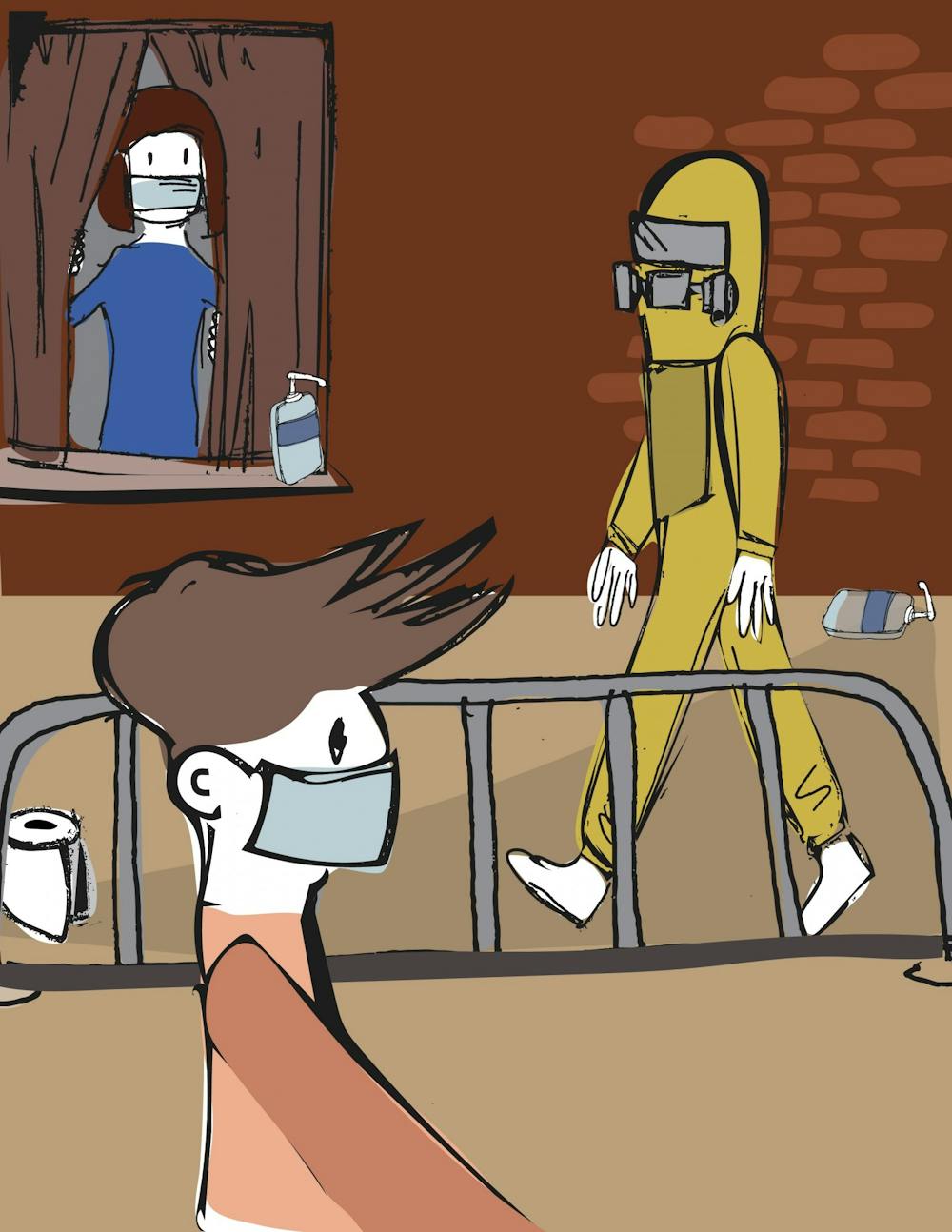We’ve all heard that, in the face of the novel coronavirus, the best practices are to wash your hands and avoid contact with others. But both the World Health Organization (WHO) and the Center for Disease Control (CDC) recommend several other things to keep yourself and others safe.
First comes identification. Symptoms of the coronavirus can range from nonexistent to severe fever, cough and shortness of breath. The disease targets the lungs, with more severe symptoms resembling the flu and pneumonia. More common symptoms include low-grade fever, body aches, coughing, nasal congestion, a runny nose and sore throat.
Coronavirus is similar to the flu and even the common cold in many symptoms, but the main way to distinguish it from those is in the way it affects the lungs. The coronavirus causes shortness of breath, whereas the flu does not.
Additionally, one way to identify whether an illness is the coronavirus or not is to pay attention to an individual’s travel history. It’s more likely to be coronavirus than the flu if someone is showing flu-like symptoms, shortness of breath and has been exposed to areas known to have cases of coronavirus. However, because some cases are asymptomatic, it is important to self-quarantine if you have recently travelled from an area where coronavirus is prevalent.
Dr. Kendall Leser, Miami’s Director of Public Health, spoke to the fear of the unknown this virus has instilled in people.
“What is most concerning is that we don’t yet know about this virus like we know about the flu or other illnesses,” Leser said. “I think the unknown is what is most concerning and anxiety-provoking in this nation as a whole.”
While the coronavirus has taken over nearly every media outlet at the moment, it’s important to understand the true scope of the disease. At press time, 154,235 individuals have been diagnosed with the virus. Of those cases, around 4 percent have died. 74,262 people, or around 48 percent, have made full recoveries. The rest are still ill.
While there are no confirmed cases of coronavirus in Oxford yet, taking this virus seriously is still vital.
We, as the younger generation, have to be good role models,” Leser said. “It’s hard to do that, but it’s important right now. This isn’t a drill. This is real, and we need to treat it as such.”
The best way to prevent cases from cropping up at Miami is to stay away from large gatherings. According to the CDC, both isolation and quarantine are effective in slowing the spread of the virus.
Isolation, or social distancing, is a self-imposed separation from others that works best for those who have yet to catch the disease. It’s different from a quarantine in that both people who are sick and those who are healthy can choose to isolate themselves. A quarantine separates and restricts the movements of those who have been exposed to the disease to see if they’re actually sick and to prevent them from spreading that sickness to others.
The CDC recommends that those who are not yet ill isolate themselves from large group gatherings, and that those who have been exposed to the virus limit human contact to an absolute minimum.
Enjoy what you're reading?
Signup for our newsletter
Aside from physical isolation, hygiene and proactivity are two things both the WHO and CDC recommend. The classic 20-second hand wash is always a must, but the soap used is important, too. Soap that contains at least 60 percent alcohol is most effective when fighting the virus. Even after thoroughly washing your hands, it’s best not to touch your mouth, eyes or face to avoid spreading germs to those areas.
Thorough cleaning of all frequently-touched surfaces with disinfectant wipes can help. These include keyboards, doorknobs, tables, cabinets, counters and more.
Finally, according to the WHO, face masks are not to be used for disease prevention. The masks have proven to be ineffective in halting the inhalation of the virus. However, they are effective for those who are already ill. If sick, wear a facemask around others whenever possible.
Leser emphasized the necessity of taking personal responsibility at every junction.
As hard as it is to think outside of ourselves, you could be that stop in the chain of infection,” she said. “Because at the end of the day, it’s not just about you; it’s about the bigger picture.”
For more complete information and instructions, visit the websites of the WHO and the CDC.
Miami’s coronavirus information page can be accessed here. The CDC also has a comprehensive coronavirus page. Anyone who is experiencing symptoms can call the Student Health Service at 513-529-3000.
Students with questions about the coronavirus and the university’s policies can reach out to Associated Student Government.
Twitter: With the conflicting info on the COVID-19 virus all over the media, here are some details about the disease and recommendations about how to fight it.
Facebook: NEWS // Looking for info on the COVID-19 virus? Here are some details about the disease and recommendations about how to fight it.




